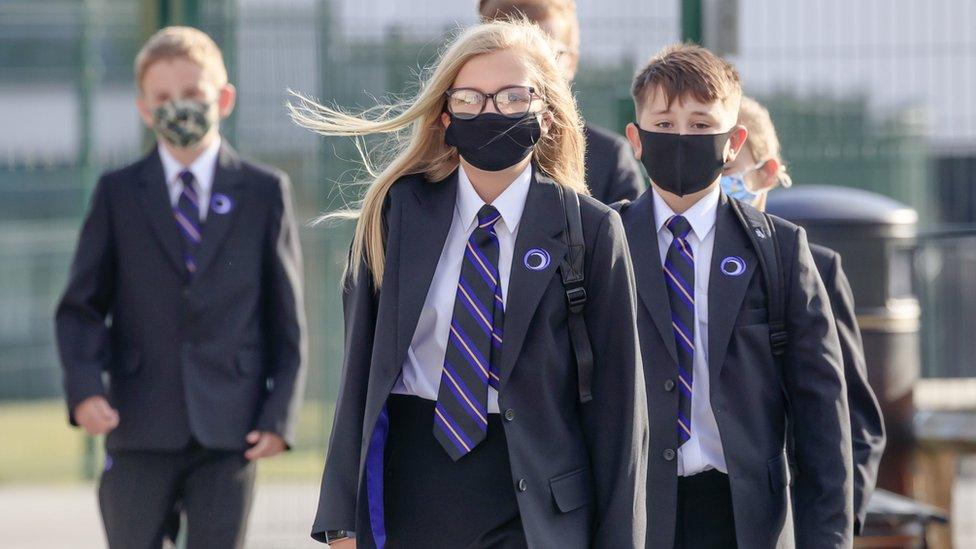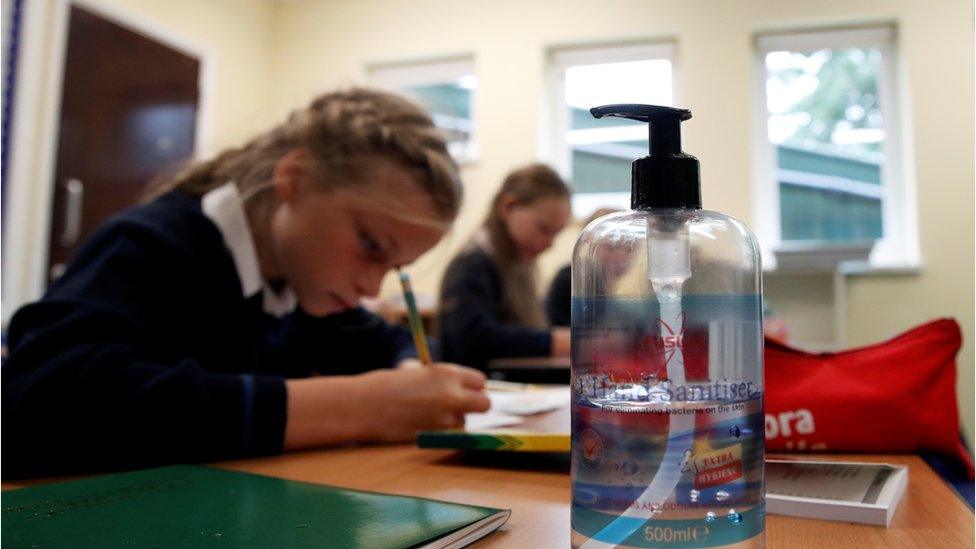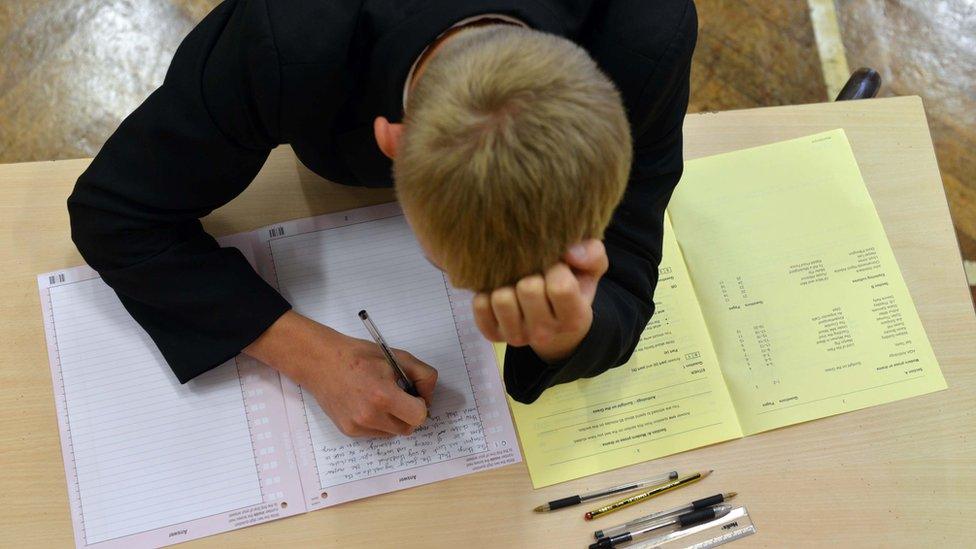Pupils sent home in half of England's secondary schools
- Published
- comments

Almost half of secondary schools in England sent home one or more pupils because of Covid incidents last week, the latest attendance figures show.
It meant pupils isolating in 46% of secondary and 16% of primary schools.
The updated figures show 5% - or about 400,000 pupils - are out of school because of Covid outbreaks.
Disruption from Covid has been increasing in schools - but the way of counting has changed which prevents comparisons with previous weeks.
Since the start of term, the Department for Education (DfE) has published a figure showing how many schools were only partially open because of having to send home groups of pupils - which had risen to 21%.
'Unfairness and unevenness'
But the latest weekly figures use a different way of showing how attendance has been affected during the pandemic - based on one or more pupils having to self-isolate.
This shows 21% of all schools, primary and secondary, sending home a pupil - with up to 13% sending home 30 or more pupils.
Below this overall average, secondary schools continue to face much more significant problems - three times more likely to send home pupils than in primary.
Overall attendance has worsened from 90% to 89% - but very few schools, about 0.3%, have been completely closed.
Julie McCulloch of the ASCL head teachers' union said the latest figures showed the "high level of disruption" from Covid outbreaks.
She said schools "haven't received enough support from the government" over access to testing and health advice - and a helpline set up for schools by the DfE had proved "patchy" in its usefulness.

But the DfE said the attendance figures showed "a small proportion of pupils are self-isolating" which was "similar to previous weeks".
Appearing before the Education Select Committee on Tuesday morning, England's Schools Minister Nick Gibb said the change in data published on attendance provided more "granular detail".
"So the attendance data that's published this afternoon will be on a different timeline from the data we've published so far, because the data we've collected so far asks schools to report whether they have sent home groups of pupils."
Exam worries
There have been concerns about how pupils missing school will be able to take GCSE and A-level exams next summer.
Mr Gibb said exams remained the fairest system - but there was a particular concern about how exams could be fair between pupils who have missed different amounts of time in school, with those in high infection areas likely to have missed the most.

Mr Gibb said GCSEs and A-levels would go ahead next summer
"The other issue that really worries me more than any other issue we're having to grapple with at the moment is the unfairness and unevenness, where different students have had a different experience of missing education during this period.
"And that is something that is something that we're working with the exam boards and Ofqual to seek to address."
He acknowledged that "some students will have suffered greater lockdowns, greater propensity to be self-isolating than students in other schools".
"That does worry me," he said.
Mr Gibb said it was important that all year groups were "able to catch up as swiftly as possible on the lost education that has been caused by this pandemic".
"We do not want this generation of schoolchildren to suffer long term as a consequence of having to close schools to most pupils from March to the summer."
Pressed about exams, he told MPs he expected GCSEs and A-levels to go ahead next summer.
"We expect all schools to sit exams, we expect all students in Year 11 and Year 13 who are studying for exams to take those exams.
"We've been working very closely with Ofqual and the exam boards certainly to begin with on the timing issue and we've already announced that there'll be a three week delay to the timing."
He said there was no plan to shorten the school holidays, saying teachers and students needed a break.